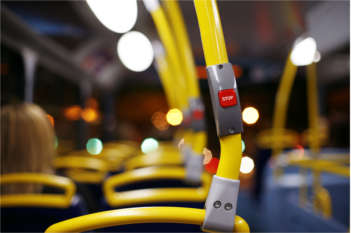Campaigners have called for action beyond the Bus Services Bill to reverse declining use after estimated journeys in England fell again, while price rises once more outstripped inflation.
The Department for Transport’s (DfT) Quarterly Bus Statistics: England for the first quarter of 2016 estimated that there were 4.53 billion passenger journeys in the year ending in March, a fall of 2.5% compared with the previous financial year.

Buses continue to carry fewer passengers
Over the same period, local bus fares increased by 1.8%, slightly higher than the all items Retail Prices Index (RPI) rate of inflation (1.6%).
Lianna Etkind, public transport campaigner at Campaign for Better Transport, said: ‘The human story behind these figures is that fewer people are taking the bus to work, to the shops and to see friends and family. Since 2010, local authorities have reduced their bus funding by a quarter.
'For many people, taking the bus is no longer even an option because so many services no longer run, or run so infrequently, leaving people stranded in their towns and villages.'
She added: ‘We hope that the Bus Services Bill, currently working its way through Parliament, will help reverse the decline in bus usage, and give local authorities the power to plan joined-up bus services that people can rely on.
'However, this can't happen without proper funding. Roads, rail, cycling and walking all have national investment strategies, it’s time we had a National Bus and Coach Strategy as well.’
During the year, the downward trend in bus use in England outside London continued with a 2.1% fall. However, bus use in London fell further, by 3.0%.
Bus use also fell during the last quarter in London, metropolitan and non-metropolitan areas, compared with the same quarter in 2015, with London again showing the largest fall, at 4.1%. Transport for London has blamed increased congestion and roads works for falling speeds and other impacts on performance.
The DfT said local bus fares in England increased by 63% on average between 2005 and 2016. Fares have risen at a faster rate in metropolitan areas (75%) than in non-metropolitan areas (47%). RPI inflation increased by 37% over the same period, which means that bus fares have risen significantly in real terms.
Register now for full access
Register just once to get unrestricted, real-time coverage of the issues and challenges facing UK transport and highways engineers.
Full website content includes the latest news, exclusive commentary from leading industry figures and detailed topical analysis of the highways, transportation, environment and place-shaping sectors.
Use the link below to register your details for full, free access.
Already a registered? Login